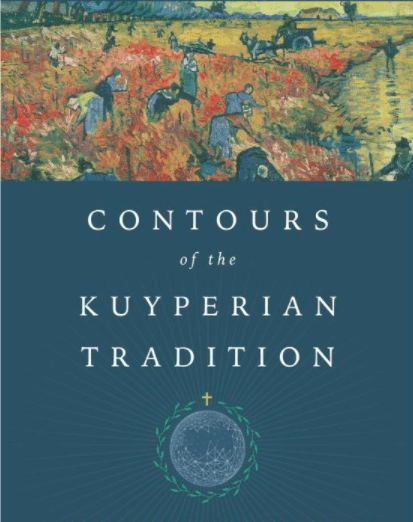 In the Kuyperian tradition Scripture is a non-negotiable. It is central. It is sufficient. Theology stands or falls with the truthfulness of Scripture. This is taste of chp 3 in Craig Bartholomew, Contours of the Kuyperian Tradition.
In the Kuyperian tradition Scripture is a non-negotiable. It is central. It is sufficient. Theology stands or falls with the truthfulness of Scripture. This is taste of chp 3 in Craig Bartholomew, Contours of the Kuyperian Tradition.
In too much of contemporary American Christianity, including much of evangelicalism, Scripture does not have the place it has in the Kuyperian tradition. Scripture is not known because it is not read and it is not read because it is not seen as important enough. Too much of “theological” conversation is the discussion of theologians and not a testing of theologians against Scripture itself.
As I read this chp in Bartholomew I had evocations of my college and seminary days reading scholarship on the doctrine of Scripture, from E.J. Young to Harold Lindsell. Yet, there were plenty of (re)freshing differences between the Battle for the Bible and Kuyperian-Bavinckian theologies of Scripture.
Bartholomew’s approach is to discuss Kuyper and then Bavinck and then others.
First, the whole chp is set up by sketching historical criticism and its challenge to both ordinary Christian Bible reading and to the centrality of theology. A theological method is jeopardized by a historical method.
Holland had its own Tübingen school (Scholten, Kuenen). Both Kuyper and Bavinck saw in the historical critical method a threat to the whole enterprise, but neither of them was overtly hostile to the historical critical method (HCM). They saw a clash of worldviews. Here are Kuyper’s three major issues with the HCM:
1. It tears apart theology and substitutes for it something that is not theology (his encyclopedic argument).
2. It robs Christians of their Bible (his dogmatic argument).
3. It leads to an unhelpful clericalism in the church (his argument about Christian liberty).
In the first, we are dealing with the inviolable centrality of theology’s substance, something along the lines of a regula fidei, Creed, and confessionalism.
The second concerns the Voice of God in Scripture vs. the voice of authors in context. He holds for inspiration but not dictation and so holds to what today is called plenary verbal inspiration. On problems in Scripture, he believes four considerations: “1. We do not have the autographs available to us. 2. The genres of Scripture must be taken seriously. 3. Rigorous apologetic work remains important. 4. Where difficulties remain, we choose to profess ignorance over a proud scientism that rejects the infallibility of Scripture.” But there are errors and here is Bartholomew’s summary of Kuyper’s analogy: “If one held a cup of pure gold whose edge was slightly damaged, who would not choose this over a cup of gold that is not real?”
The third concerns the supposed need to let the scholars decide first.
The spiritual impulse of the day to transpose the “Deus homo” into the “Homo-deus” is bound to lead to a casting off of Scripture, or when piety exercises some restraint, to rend the map of Scripture and put it together again in a different composition until “Scripture” affirms the wisdom of the world. The end result: the church is robbed of the Bible.
It is “learned opinions of clerics.” I’ve heard Grudem make this same claim about Webb when Grudem himself belongs to the very guild he is criticizing.
Bavinck is very similar, though he emphasizes history (incarnation) and salvation-history, which in the next generation of Kuyperians (think H Ridderbos), and the “religious-ethical” purpose of Scripture.
Scripture is not a manual for the special sciences, and we can neither construct a life of Jesus nor a history of Israel from the Bible. Scripture, furthermore, does not satisfy the demand for exact knowledge as we do in mathematics, astronomy, and so on. Biblical historiography has a character of its own, but it does not follow that it is untrue and unreliable.
Those are summary words by Bartholomew. What his shows, if accurate, is that the Reformed in the Kuyperian camp had more than enough tradition to ignore the radical demands of the inerrantists in the Lindsell mode of thinking.
His concluding summary:
The Kuyperian tradition holds rich resources for a recovery of Scripture today. In the context of the emergence into sharp focus of the modern world, Kuyper and Bavinck saw with crystal clarity the importance of holding fast to Scripture as God’s infallible word. Contrary to so much biblical study today, they affirm a hermeneutic of trust in Scripture and a hermeneutic of suspicion in relation to ourselves and cultural trends, not least in relation to modernism. Both rightly affirm an organic view of inspiration, and Bavinck develops this in detail.











